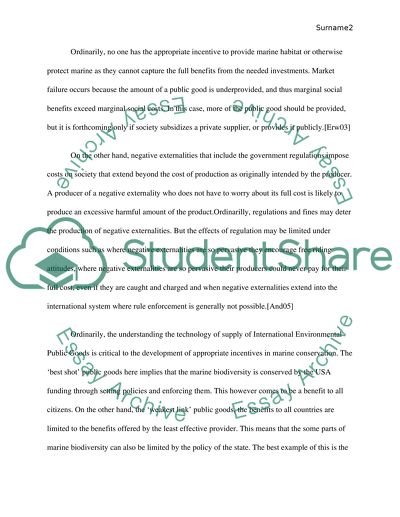Retrieved from https://studentshare.org/macro-microeconomics/1679226-discussing-incentives-to-conserve-marine-biodiversity-conservation-within-the-framework-of-impure-public-goods
https://studentshare.org/macro-microeconomics/1679226-discussing-incentives-to-conserve-marine-biodiversity-conservation-within-the-framework-of-impure-public-goods.


